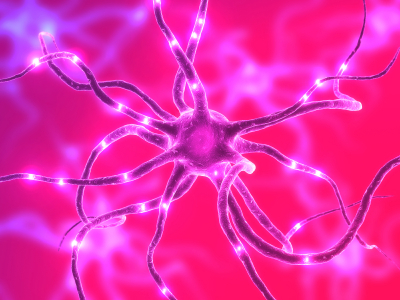Studies have shown that exercise promotes learning and neurogenesis, or the creation of new brain cells, but exactly what’s going on is still being worked out. One group of scientists, however, think they’re on the right track.
Researchers from the University of Tsukuba, the University of Tokyo, and The Rockefeller University considered a number of studies that have shown that hormones have more to do with our brains than previously imagined.
Hormones Produced in the Hippocampus
In the past, androgen hormones were thought to be produced solely in the testes and carried to the brain via circulation, but several studies have revealed that androgens can actually be made in the hippocampus, the part of the brain that is associated with forming and storing memories.
In 2010, Endocrinology published a study that found higher levels of sex hormones in the hippocampus than in the circulatory system of rats. Furthermore, even when the rats were castrated at birth, there was not a significant reduction of sex hormones in specific regions of the brain, leading scientists to believe that specific sex hormones are not only important for gender development, but for brain development as well.
Hormones Linked to Brain Plasticity
Recently, more scientists have been pursuing research that links hormones to brain development. In 2006, researchers from Yale discovered that androgens affect hippocampal synaptic plasticity.
There are billions of neurons in our bodies, and we rely on these cells to transmit information to other cells via synapses so that we can function. The more efficiently our neurons respond to messages, the more effectively our bodies function. Luckily (or unluckily) for us, scientists have discovered that this responsiveness can change – depending on how often we put our neurons to work.
The more we use certain synaptic pathways, or the structures that transmit information between neurons and other cells, the more they are strengthened – literally becoming engraved in our minds. Not engaging these synaptic pathways, however, results in slower responding neurons and cells.
The ability of synaptic pathways to become more or less responsive is referred to as synaptic plasticity. In the case of the neuron, the adage “practice makes perfect” or “use it or lose it” rings true. It’s no wonder that synaptic plasticity is associated with learning and memory.
But our ability to learn and remember is not solely based on how often we use certain synaptic pathways; the plasticity of the brain seems to be hinged on sex hormones, too.
The scientists from Yale found that when the testes were removed from rats, there was a significant decrease in the number of synaptic pathways. Yet these pathways were replenished when the castrated rats were treated with androgens. They found similar outcomes with ovariectomized female rats, but female rats rely more on endogenous estrogens, so weaker androgens were sufficient for rebuilding synaptic pathways.
Though scientists are still trying to understand the exact mechanisms involved with brain development, they have begun to recognize how important sex hormones are to brain development and our ability to learn.
Researchers Connect Exercise to Hormone Production
Building upon previous research, the scientists from Japan and New York proposed that exercise actually increases the production of androgenic hormones in the brain, and that this increase in sex hormones promotes neurogenesis. The study was published in the Proceedings of National Academy of Sciences, and the results sparked excitement.
In order to ensure that the androgen hormones were produced in the brain and not the testes, the researchers castrated some of the rats. Although the remaining test group of rats were not castrated, they still underwent a surgical procedure so that conditions and stress levels did not vary between the two groups.
There has already been research showing that the female sex hormone, estradiol, is involved in neurogenesis, so the scientists decided to focus on the male sex hormones. To ensure that testosterone was not being converted to estradiol, the researchers blocked the estrogen receptors with tamoxifen, a non-reactive binding agent, so estradiol could not be taken up in the brain.
The researchers found that after exercise, the androgen dihydrotestosterone increased significantly in the brains of the rats – even in the castrated rats. They also found an increase in the number of neurons in the hippocampus – and the results did not change in the rats that were treated with tamoxifen.
Some rats, however, had specific receptors blocked so that they could not use the dihydrotestosterone in the brain. The scientists were surprised to find that these rats did not experience neurogenesis, leading researchers to believe that dihydrotestosterone is not only produced as a result of exercise, but is also necessary for the production of new brain cells.
Though there is still much more research to be done (the researchers only experimented with male rats, for starters), the study demonstrates the complexity of our bodies and the hormones within us. As for me, I feel more compelled to exercise before I learn something new – hormones help me.














